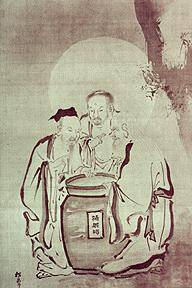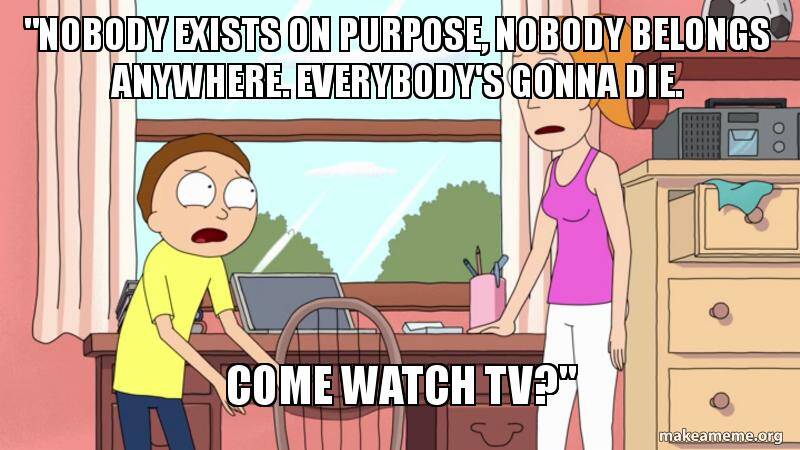I’ve mentioned nihilism (and existentialism) more than a few times on here, so I thought it was time to write this out and be clear about what I mean.
When it comes to my outlook on life, I have a tendency towards cheerful existential nihilism.
I should probably clarify what that means to me; there’s a lot of debate about what these words actually mean.
It starts with the premise that the universe has no inherent meaning – or at least the agnostic view that we can’t (perfectly) know that meaning.1
And then taking the advice of the Hitchhiker’s Guide to the Galaxy
Don’t panic.
It’s the reaction to that lack of meaning that characterizes your viewpoint. For example, Karen Carr, in the Banalization of Nihilism , said that cheerful nihilism is “distinguished by an easy-going acceptance of meaninglessness.”
Aside from her very critical view of nihilism as an ethos, I’m not sure that definition is entirely right for me. The kind of cheerful existential nihilism that I think about is something of a combination of the three major philosophical reactions to a meaningless universe: existentialism, nihilism, and absurdism.
Existentialism is the belief that through a combination of awareness, free will, and personal responsibility, one can construct their own meaning within a world that intrinsically has none of its own.
Daniel Miessler
Nihilism is the belief that not only is there no intrinsic meaning in the universe, but that it’s pointless to try to construct our own as a substitute.
Absurdism is the belief that a search for meaning is inherently in conflict with the actual lack of meaning, but that one should both accept this and simultaneously rebel against it by embracing what life has to offer.
 This tickles me; it’s essentially The Vinegar Tasters for European philosophy. The painting, as explained by the Tao Of Pooh2, reflects on the tone and temperament of the three major religious and philosophical teachings of China3.
This tickles me; it’s essentially The Vinegar Tasters for European philosophy. The painting, as explained by the Tao Of Pooh2, reflects on the tone and temperament of the three major religious and philosophical teachings of China3.
And so that leads me to saying and writing things like “Life is pain, princess. Choose love anyway” , or enthusiastically quoting Tom Robbins saying “That which does not kill us makes us stranger“.
Mixing these three (or six, or maybe the other three, depending on how you look at it) viewpoints together into a tasty philosophical stew sounds, well, a bit too introspective and academic for most people. It’s important if you want to understand why I say the things I’m saying.
Academic or not, this viewpoint effects how we look at the world. So I’ll leave summing it up to Morty:
“Nobody exists on purpose. Nobody belongs anywhere. Everybody’s gonna die. Come watch TV?”

Or maybe YouTube instead. If videos (and cartoons) are more your thing, there’s a great video by Wisecrack that looks at a lot of this (and probably makes more sense than me) by comparing Bojack Horseman and Rick and Morty:
[1] Yes, I just put in a loophole for religion.
[2] Read the excerpt from the book at https://www.taoism.net/sanctuary/books/vintaste.htm
[3] Confucianism seems to (roughly) align with Existentialism, Buddhism with nihilism, and Taoism with absurdism. Or at least, I think so. YMMV.
